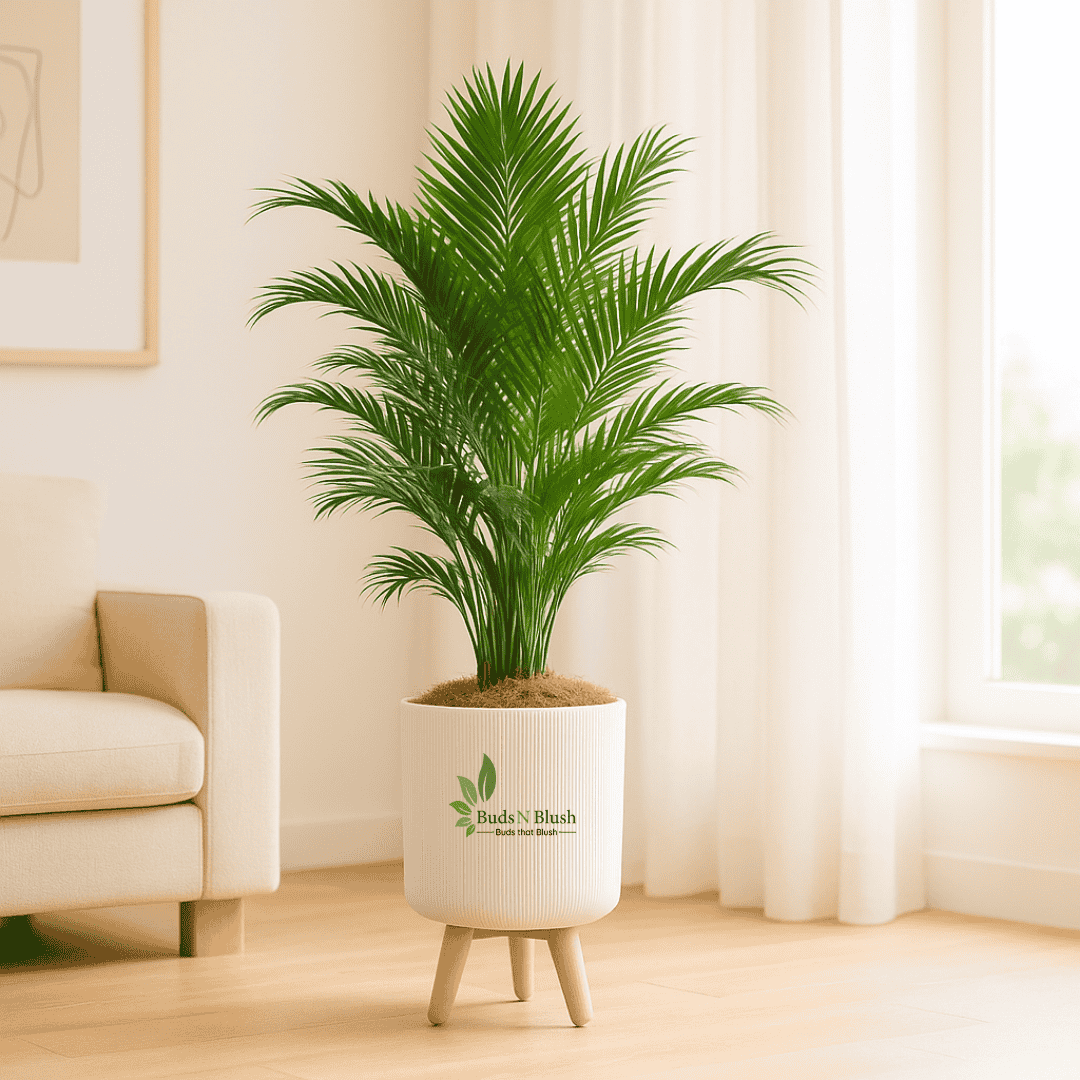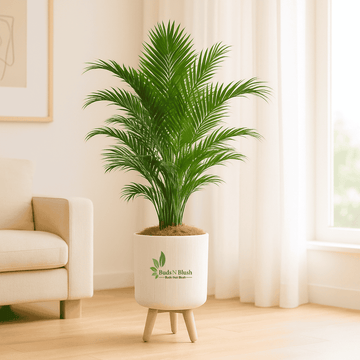✅ Parlour Palm – Graceful Greenery for Timeless Indoor Style
Parlour Palm (Chamaedorea elegans) is a classic indoor palm cherished for its elegant, feathery fronds and ability to thrive in low-light conditions. Compact yet lush, it adds a touch of tropical sophistication to homes and offices without demanding high maintenance. Known for its air-purifying qualities and graceful presence, the Parlour Palm has been a favorite in interior décor for over a century.
✅ Origin and Natural Habitat
-
Native to the rainforests of Southern Mexico and Guatemala
-
Grows naturally under the canopy in shaded, humid environments
-
Adapted to warm, consistent temperatures year-round
-
A slow-growing palm species suited for indoor life
✅ Perfect Placement for a Stunning Home or Office Statement
-
As a floor plant in living rooms for a tropical focal point
-
On side tables or plant stands in hallways and offices
-
In shaded patios or covered balconies in warm climates
-
In bedrooms for a calming, natural touch
-
As part of a cluster of indoor palms for a lush, jungle feel
✅ Care Guide – From Nurturing to Flourishing
-
Thrives in medium to low, indirect light
-
Water when the top inch of soil feels dry, avoiding soggy conditions
-
Plant in a well-draining potting mix with organic matter
-
Prefers moderate to high humidity but adapts to average indoor air
-
Feed every 6–8 weeks during the growing season with a balanced, diluted fertilizer
-
Wipe leaves occasionally to remove dust and keep them healthy
✅ Benefits of Growing Parlour Palm
-
Elegant fronds add soft, natural texture to interiors
-
One of the best palms for low-light environments
-
Naturally helps purify indoor air
-
Pet-safe and non-toxic to cats and dogs
-
Long-lived and slow-growing, making it a lasting investment plant
✅ Common Problems and How to Prevent Them
-
Yellowing fronds – usually from overwatering; adjust watering habits
-
Browning tips – increase humidity or use filtered water
-
Pests like spider mites – treat early with neem oil or insecticidal soap
-
Leggy growth – provide slightly brighter, indirect light







